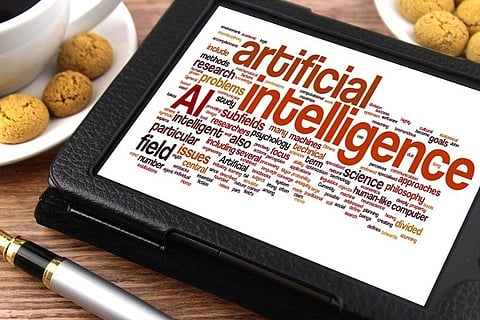

Artificial intelligence can significantly impact the future of our education. There are various technology providers that are introducing AI products to enhance new-age learning. Evolving our educational structure typically starts from the private sector, but new innovations are seeping into key school districts within states as well.
In an article for The Quint, Vikas Singh MD at Pearson India shines more light on the current dynamics of AI in Indian education.
“Though it is still too soon to start seeing robotics in classrooms, AI is already becoming an effective teaching tool because of its ability to adapt and offer customised curricula. AI-enabled tools help assess an individual’s current level of understanding, identify gaps and offer tailored suggestions, just like a teacher would.”
Data from research firm Tracxn suggests that over 300 Indian startups use AI in their core product offering. About 11% of them are based in the educational sphere. This is a strong sign of industries outside of technology and ecommerce using AI in their product offering.
While the ultimate goal is complete customization, various apps and programs are helping us along the way. Tutoring apps are customizing their lesson structures depending on the performance of a unique user profile. Enhanced data crunching is making testing a more interactive phenomenon in India.
A shining example in the Indian education space is the app Toppr. The app is utilizing best practices in AI to ensure that there is increased engagement in the lesson plan that the student is interacting with. As a result, the app has produced Indian toppers that have religiously relied on its AI-based model.
“At Toppr, we use both machine learning and AI to map out a student’s strengths and weaknesses. Individual learning speeds and records are taken into consideration. These tests are designed to boost a child’s confidence in areas they excel in and challenge them in areas they don’t. This holistic approach helps children remain motivated,” says ZishaanHayathCo-Founder & CEO, Toppr.
The results are stunning with Toppr. The average qualification rate for JEE was about 20%, but Toppr students had a 36% qualification rate. This is a significant enhancement in the educational sphere, and schools are learning how they can incorporate such innovations.
EduGorilla is another company that uses AI to analyse Big Data in the education industry in India. It analyses data from 600,000 schools and 70,000 plus coaching centres to provide top quality results for Indian students. This enables them to be a one-stop shop for all things education-based in India. Students can rely on one platform to have their questions answered.
“Even the remotest of students can learn and improve their results. We implement AI to find the latest educational trends across the world and compile it subject-wise for students of all categories or ages on our ‘trends’ page,” says Rohit Manglik, CEO of EduGorilla.
While the movement is slow, the pacing is strong in distributed markets. There are various companies working directly with educational institutes to enhance their core offering.
Reliance backed startup Embibe is also creating better outcomes for students in the country. Embibe had earlier acquired 100Marks which is an engineering and medical entrance exam training platform. With this, the education sector is using AI to enhance outcomes for students in India. Corporates are participating as investors and innovators.
The platform has impacted the lives of 15 million students across the country. They’ve also worked with more than 60 educational institutes in enhancing the curriculum and learning systems via a PAAS model. Essentially, the platform employs a technique called relative quartile jump, which assesses the knowledge of the student on a frequent basis.
“With robust AI stacks focused on content intelligence and automation, behavioural recommendations and student intelligence, our products have redefined the way edtech can impact the lives of students and teachers. We are supercharging our platform with the ability to deliver both content and outcomes for every learning goal in every student’s journey, to be the leader in personalizing education for India and the world, says” Aditi Avasthi, founder and CEO at Embibe.
Currently, the need of the hour is AI in the classroom. We haven’t yet evolved to a stage where we can take leaps in the AI space. We’re still waiting for our US counterparts to scale classroom-based AI solutions. While innovations are ongoing, no single application has come out on top. AI can be used to find gaps in the learnings of the student and provide real-time solutions. The technology can also identify areas where teachers are outnumbered by students and create optimized learning programs that impact the largest number of students.